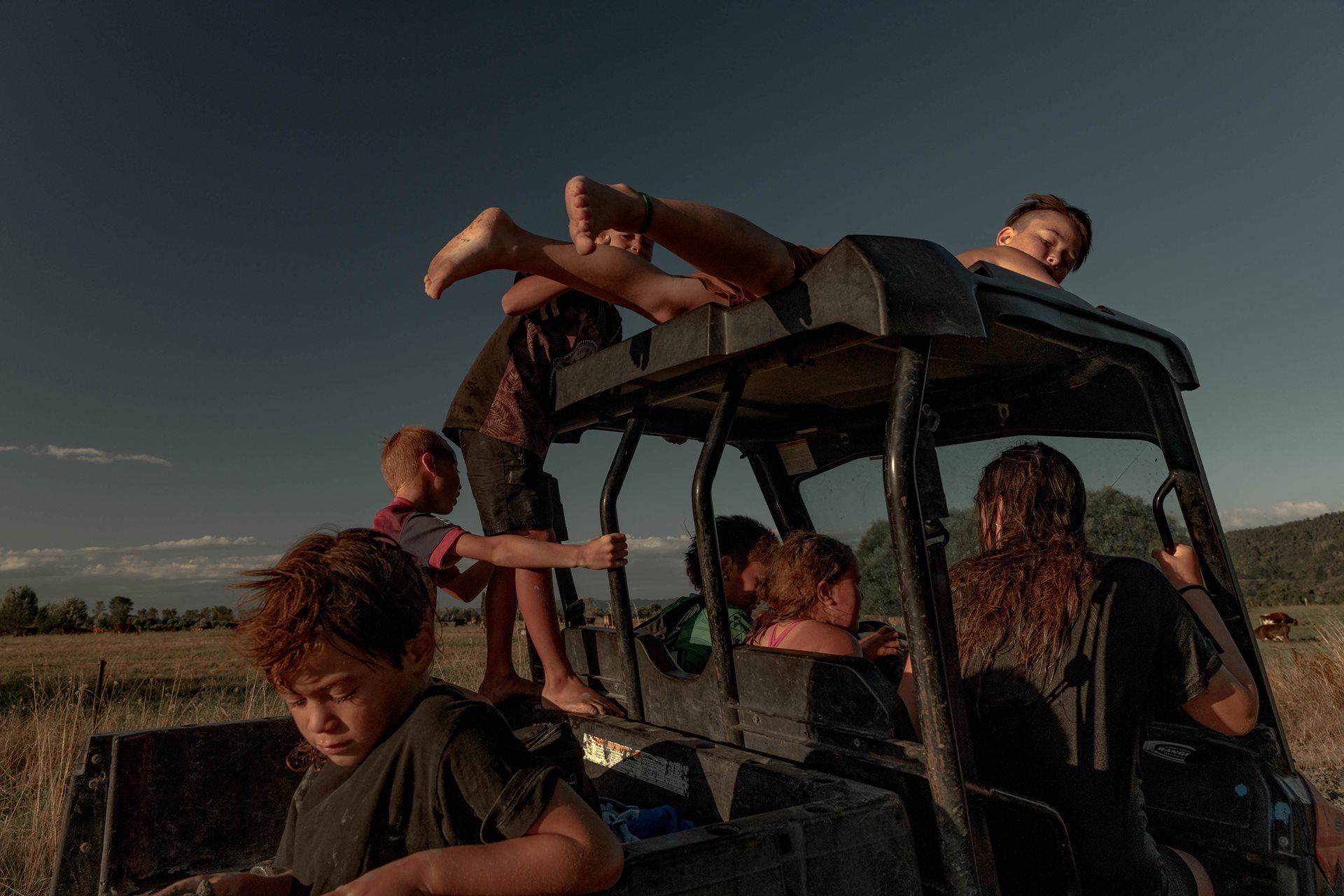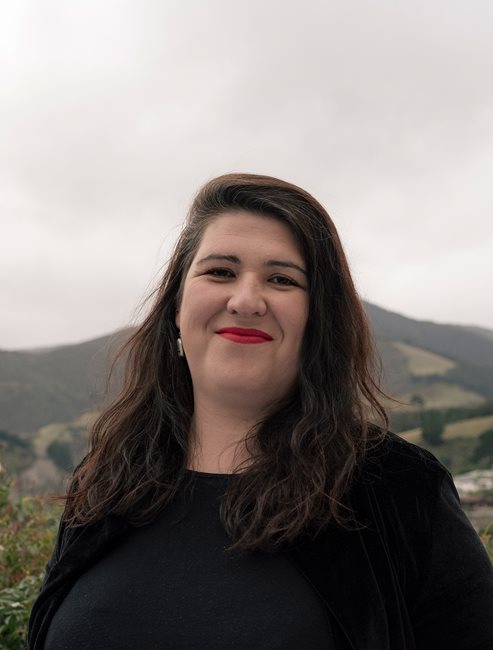Children from the Teepa family drive the younger siblings home, after a swim in the Ōhinemataroa (Whakatane) River, in Ruatoki, New Zealand. Tūhoe children are taught independence and to care for other family members.
The Ngāi Tūhoe of the Te Urewera region of New Zealand are known as ‘Ngā Tamariki o te Kohu’, the ‘Children of the Mist’. They are said to have been born of the land, people whose ancestors ‘sprung forth’ from the soil and rocks of Te Urewera before time itself. The Tūhoe have long maintained a staunchly independent spirit. Their isolated homeland in the hill country of the North Island meant they originally had little contact with colonizing British settlers. Even after violent Crown incursions into Te Urewera continued to resist colonization limiting interactions with settlers while fighting to preserve their autonomy.
Tūhoe have never lost their connection to their language and cultural identity. In 2014, the New Zealand government granted Te Urewera – Tūhoe’s ancestral land and a former national park – “legal personhood” – a legal concept granting the land rights akin to a person. This allowed Tūhoe to manage their homeland according to their cultural principles (Te Kawa), emphasizing kinship with nature, and concepts like mauri (life essence).
Recent policy shifts by New Zealand’s right-wing government are seen as undermining Indigenous rights progress. These changes risk marginalizing iwi (Māori tribal communities) in decision-making and excluding their views from reforms. Tensions persist between Western conservation and Indigenous stewardship (kaitiakitanga): iwi assert their right to manage ancestral lands autonomously, while some conservationists prioritize non-human ecosystems, sidelining Indigenous sovereignty. Despite co-governance models like Te Urewera, colonial-era power imbalances remain, particularly in land-use decisions.
Yet, despite these challenges, the Tūhoe's approach represents a significant step toward their playing a central role in environmental stewardship, while preserving culture and community. Like many Tūhoe, John Rangikapua Teepa spent decades living in the city before returning to his ancestral dairy farm in Ruatoki, Te Urewera, with his wife and six children. Embracing the traditional practice of whāngai, they adopted and raised more than 20 children, fostering a sense of community and continuity. United with other family farms, their land forms the Tataiwhetu Trust. Established in the 1980s by six Ngāti Rongo families, the farm had been abandoned for years before it was revitalized and transformed into a leading organic dairy operation, operating under the guiding philosophy “Ka ora te whenua, ka ora te tangata” – “When the land is in good health, so too are the people”.
Are you a photographer and/or passionate about press freedom? Sign up for our newsletter to stay updated on our annual contest and to hear about exhibitions near you.

